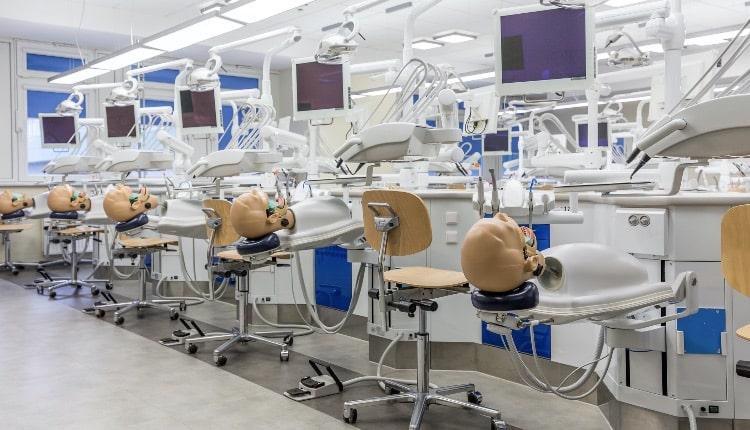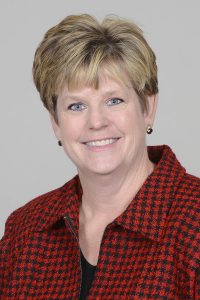
Meeting Today’s Challenges
Stymied by the global pandemic, Elizabeth McClure, RDH, MEd, sought legislative help to enable her dental hygiene students to receive provisional licenses to provide much-needed dental care to Ohioans.

After graduating from the Dental Hygiene Program at what is now the University of Cincinnati (UC) Blue Ash in 1984, Elizabeth McClure, RDH, MEd, worked in private practice. But she eventually returned to her alma mater, where she is now program director and a professor of dental hygiene. McClure kindly took time out of her schedule to share her perspective on the profession.
Q: What do you see as the greatest challenges graduating dental hygienists face in our current pandemic climate?
A: Because our clinic is only allowed to be open at half capacity, we’ve had to run double the number of clinics in order to provide our students the amount of clinical time our accreditation dictates. Additionally, almost all courses are held online. Having mostly taught in a traditional face-to-face classroom, the faculty had to quickly get comfortable with online teaching.
Q: Due to delays in licensing exams, you have lobbied to allow dental hygiene students to obtain provisional licenses so they can help meet the oral health care need in Ohio. What are the latest developments on this issue?
A: A provisional license for dental hygienists and dentists was initially approved by the Ohio State Dental Board on May 6, 2020, and was sent to the Ohio Governor’s office where it was never approved, despite numerous inquiries from the public. Finally, after two pandemic-related cancellations, our students were permitted to take the Regional Clinical Exam (ADEX) on typodonts. We are thrilled to report that our program had a 100% pass rate on the exam.
Q: What kinds of developments do you foresee for the future of dental hygiene in Ohio and across the nation?
A: Dental hygienists already play a principal role in operating local school-based dental centers that treat some of our most vulnerable populations. The result has been a significant decrease in oral disease among such patients. Several of our graduates also recently completed the American Dental Association Community Dental Health Coordinator Program and are working to break down local barriers to oral healthcare.
I look forward to the additional duties that may possibly be added to our scope of practice, including the administering of Botox, prescribing of antibiotics, and the use of lasers. In Ohio, I anticipate that dental therapy will become an option for those who desire to continue their education and career path. It is my hope that nationally there will be additional compensation to dental hygienists as they obtain higher degrees, additional training, or take on supplementary duties.

